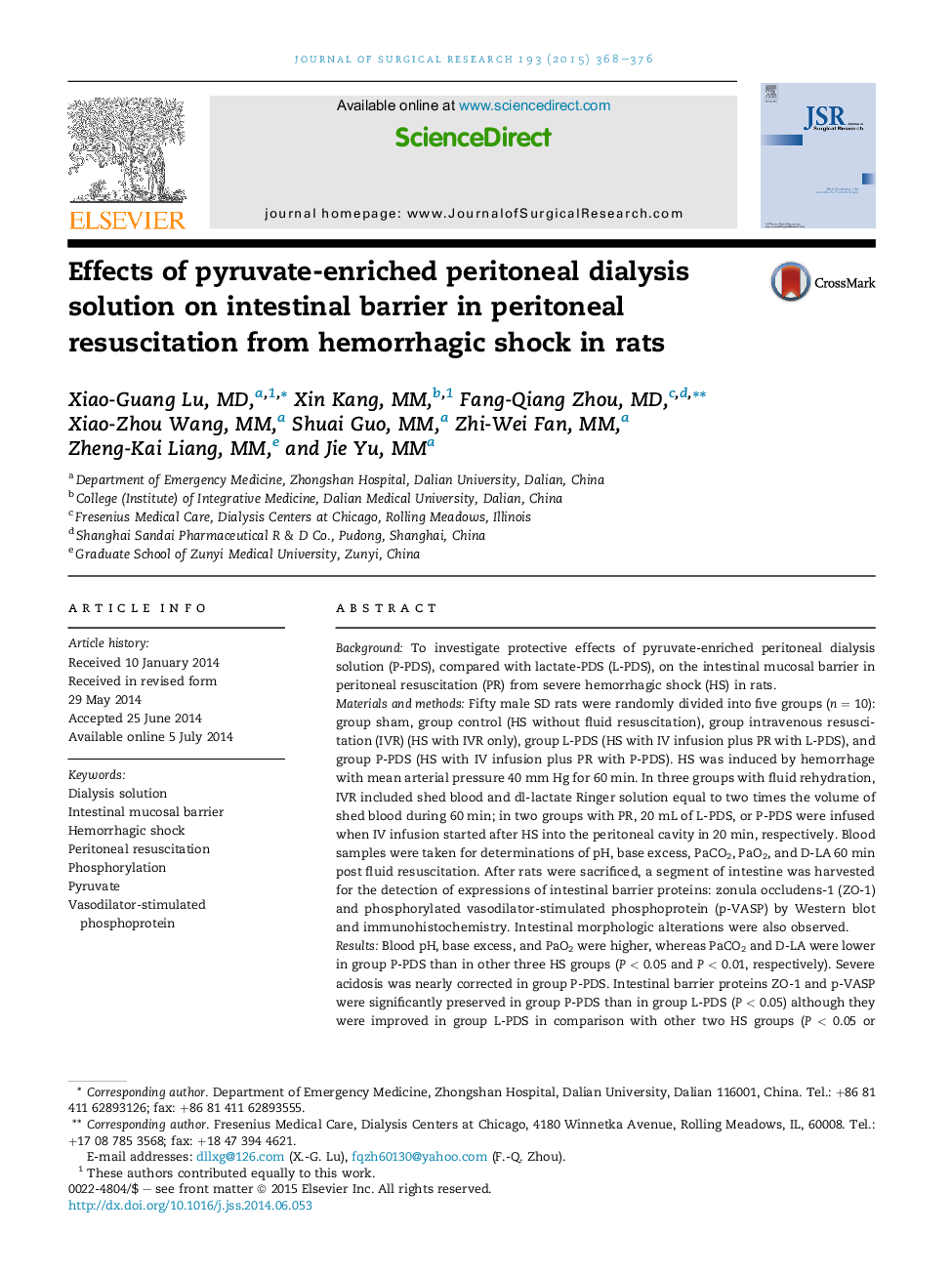| Article ID | Journal | Published Year | Pages | File Type |
|---|---|---|---|---|
| 6253773 | Journal of Surgical Research | 2015 | 9 Pages |
BackgroundTo investigate protective effects of pyruvate-enriched peritoneal dialysis solution (P-PDS), compared with lactate-PDS (L-PDS), on the intestinal mucosal barrier in peritoneal resuscitation (PR) from severe hemorrhagic shock (HS) in rats.Materials and methodsFifty male SD rats were randomly divided into five groups (n = 10): group sham, group control (HS without fluid resuscitation), group intravenous resuscitation (IVR) (HS with IVR only), group L-PDS (HS with IV infusion plus PR with L-PDS), and group P-PDS (HS with IV infusion plus PR with P-PDS). HS was induced by hemorrhage with mean arterial pressure 40 mm Hg for 60 min. In three groups with fluid rehydration, IVR included shed blood and dl-lactate Ringer solution equal to two times the volume of shed blood during 60 min; in two groups with PR, 20 mL of L-PDS, or P-PDS were infused when IV infusion started after HS into the peritoneal cavity in 20 min, respectively. Blood samples were taken for determinations of pH, base excess, PaCO2, PaO2, and D-LA 60 min post fluid resuscitation. After rats were sacrificed, a segment of intestine was harvested for the detection of expressions of intestinal barrier proteins: zonula occludens-1 (ZO-1) and phosphorylated vasodilator-stimulated phosphoprotein (p-VASP) by Western blot and immunohistochemistry. Intestinal morphologic alterations were also observed.ResultsBlood pH, base excess, and PaO2 were higher, whereas PaCO2 and D-LA were lower in group P-PDS than in other three HS groups (P < 0.05 and P < 0.01, respectively). Severe acidosis was nearly corrected in group P-PDS. Intestinal barrier proteins ZO-1 and p-VASP were significantly preserved in group P-PDS than in group L-PDS (P < 0.05) although they were improved in group L-PDS in comparison with other two HS groups (P < 0.05 or P < 0.01). Expressions of barrier proteins by Western blotting in group P-PDS were reversed to normal. The score of intestinal epithelial damage index was reduced in group L-PDS, compared with other two HS groups (P < 0.05), however, it was significantly lower in group P-PDS than in group L-PDS (P < 0.05).ConclusionsPyruvate was superior to lactate in PDS in the correction of severe acidosis with PR. P-PDS was more preservative of expressions of intestinal ZO-1 and p-VASP and mucosal barrier function, compared with L-PDS in PR from severe HS in rats.
